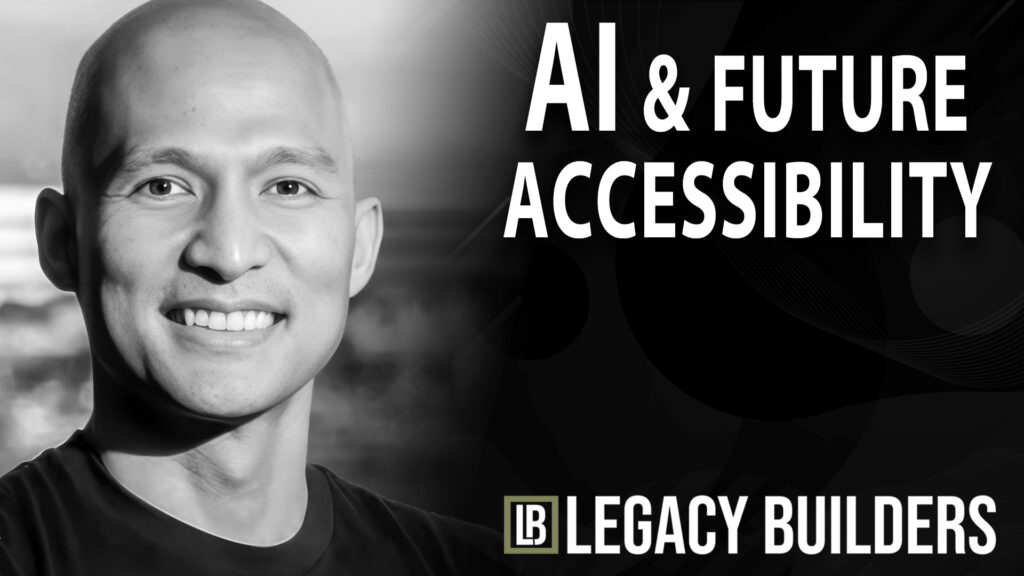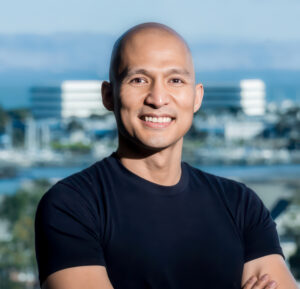The AI Revolution: Avoiding a Future Controlled by the Few

Artificial Intelligence (AI) is at an inflection point. While most discussions center around the potential and risks of AI, Aldo Carrascoso, CEO and Co-Founder of Vivum AI, offers a different perspective—AI is at its own “War of Currents” moment, much like the battle between AC and DC electricity in the early 20th century. In a recent fireside chat, he warned of the risks of allowing AI to be monopolized by a select few, drawing parallels to a world where energy transmission had been dominated by a single current type.
The AC/DC Moment of AI
Carrascoso framed AI’s current trajectory as an issue of centralization versus decentralization. He explained, “Currently, we are building only on DC. All of the infrastructure that’s being built, powered by the large companies, is being built on DC only. That’s why you have centralized, powerful companies that control all of the compute, all of the power, all of the training, and all of the inferencing.”
His concern? If this model continues unchecked, AI will remain the domain of a select few, much like how energy distribution could have been monopolized if Edison’s direct current (DC) had won over Tesla’s alternating current (AC). “Imagine if energy was controlled by a few people. I cannot allow that to happen.”
A Biological Approach to AI
Carrascoso’s solution is to break AI free from the rigid infrastructure built around expensive GPUs and centralized computing power. Instead, Vivum AI takes inspiration from biology. “We’re not really an AI company, because we utilize the intelligence and efficiency of biological systems,” he explained.
Observing nature, he pointed out, “When you see cats hunt or when you see falcons surveil, don’t you ever wonder the type of intelligence that exists inside those animals? They have neural circuitry in their head. It’s called an archetypal neural circuitry.” This neural structure operates differently from traditional AI models, which rely on matrix-based systems that consume enormous amounts of power.
“Our brain utilizes just 20 watts of energy, whereas ChatGPT runs on megawatts. What if we could harness the efficiency of biological systems mathematically and create AI that runs 6,000 times less energy, 40 times faster?”
Breaking the AI Monopoly
One of the biggest barriers to AI accessibility today is the stranglehold on computing hardware. “If you’re in Hungary or Bulgaria, and you want to build AI, but you can’t even get GPUs, how are you supposed to compete?” he asked. The major tech companies dominate the market, leaving little room for new entrants.
Vivum AI’s approach eliminates the need for cutting-edge GPUs. “What if AI could work on already installed hardware—FPGAs, CPUs? It’s just a different math,” he said, referring to differential equations as a foundation for their AI models. “It’s hiding in plain sight.”
AI for National Security and Beyond
Vivum AI has made national security its first priority. “We work with defense. We’re a defense company,” Carrascoso shared, noting partnerships with the Department of Defense and NATO allies. The need for decentralized AI is particularly crucial in military applications, where efficiency and accessibility can be the difference between success and failure.
Beyond defense, Vivum AI is also addressing industrial applications, such as oil and gas, where it has already extended drone range by 5,000%. Additionally, the company is exploring the use of AI in Africa to combat poaching through autonomous surveillance systems that require minimal computational power.
The Future of AI: A Call to Action
Carrascoso’s message is clear—AI must be democratized. If left unchecked, AI’s current trajectory will lead to an oligopoly where a handful of companies control its power and applications. “If you’ve invested in a company right now using classical AI, you are literally investing in only the DC version,” he warned.
His hope is that Vivum AI’s approach will inspire a broader shift in the industry, making AI more efficient, accessible, and sustainable. “We are going to come out with a software development kit soon. We are just inundated with servicing government contracts right now.”
AI is not just a technological revolution; it is a societal shift that could define the future of innovation, security, and access to information. The question Carrascoso poses is not whether AI will change the world—it will. The real question is: Who will control it?
 Aldo Carrascoso
Aldo Carrascoso
Co-founder & CEO of Vivum
Aldo is a visionary entrepreneur and technology leader known for his ability to innovate and disrupt traditional industries. He is currently the CEO and Co-Founder of Vivum AI (Vivum pioneers cutting-edge Evolutionary AI (E-AI), reshaping AI for autonomous vehicles, robotics, and edge devices that currently run on Conventional AI (C-AI) like Deep and Reinforcement Learning).
Previously, he was the Co-Founder and CEO of InterVenn Biosciences (2016), where he led the company in creating a first-of-its-kind glycoproteomic biomarker interrogation platform called GlycoVisionTM using AI and machine learning, which improved the diagnosis and treatment of various diseases through liquid biopsies. This platform was based on the decades-long work of his co-founders, Nobel Laureate Dr. Carolyn Bertozzi from Stanford (glycobiology) and renowned scientist Dr. Carlito Lebrilla from UC Davis (glycoproteomics).
Under Aldo’s leadership, InterVenn revolutionized the field of precision medicine by being the first to scalably unlock the glycoproteome, which has enabled the accurate and early detection of diseases such as cancer and autoimmune diseases. Additionally, the company’s cutting-edge technology has facilitated the identification of new biomarkers and drug targets, paving the way for the development of more effective treatments and diagnostics, such as DawnTM Immunotherapy, GloriTM Ovarian, and GlycoKnowTM Colorectal.
Prior to InterVenn, he founded and was COO/CTO at Veem (2013), a global cross-border payment processing company and blockchain pioneer and founded and was CTO at Jukin Media(2009), one of the world’s largest UGC licensing platforms that has over half a trillion views. Aldo has a proven track record of success as an entrepreneur, having started companies that have generated significant value for investors (>$1B) and improved people’s lives. He is also an active angel investor and holds an MBA from Babson and a BS from Ateneo De Manila University. Aldo is widely respected for his deep understanding of transformative technologies such as artificial Intelligence, machine learning, data science, blockchain, and cloud computing.
Health Care For Senior Citizens – Understanding Medicare!
Health Care For Senior Citizens – Understanding Medicare! By Dennis Wolfe In America having health care cost protection (also known as medical insurance) is not a right. Neither is it a right to access health care services. Health care services in strict economic definitions are simply services for which we consumers pay fees. As consumers…
Rate Yourself Using Debt-to-income Ratio
Rate Yourself Using Debt-to-income Ratio By Linda Stern WASHINGTON (Reuters) – If you were a company, what would the analysts be saying about you? Most investors use financial ratios to grade the companies the average debt to income ratio by age buy and sell, but they rarely subject their own finances to the same…
Taxpayers Have Until April 17 to File and Pay
Taxpayers Have Until April 17 to File and Pay Taxpayers across the nation will have until Tuesday, April 17, 2007, to file their 2006 returns and pay any taxes due, the Internal Revenue Service announced today. Taxpayers will have extra time to file and pay because April 15 falls on a Sunday in 2007, and…
IRS FIN 48
IRS FIN 48 Background As a result of the impending effective date for the application of Financial Accounting Standard Board Interpretation No. 48, Accounting for Uncertainty in Income Taxes, of FASB Statement 109 (FIN 48), some taxpayers may wish to request a greatly accelerated examination and resolution before the end of their current financial statement…




